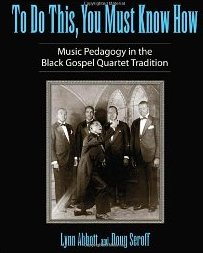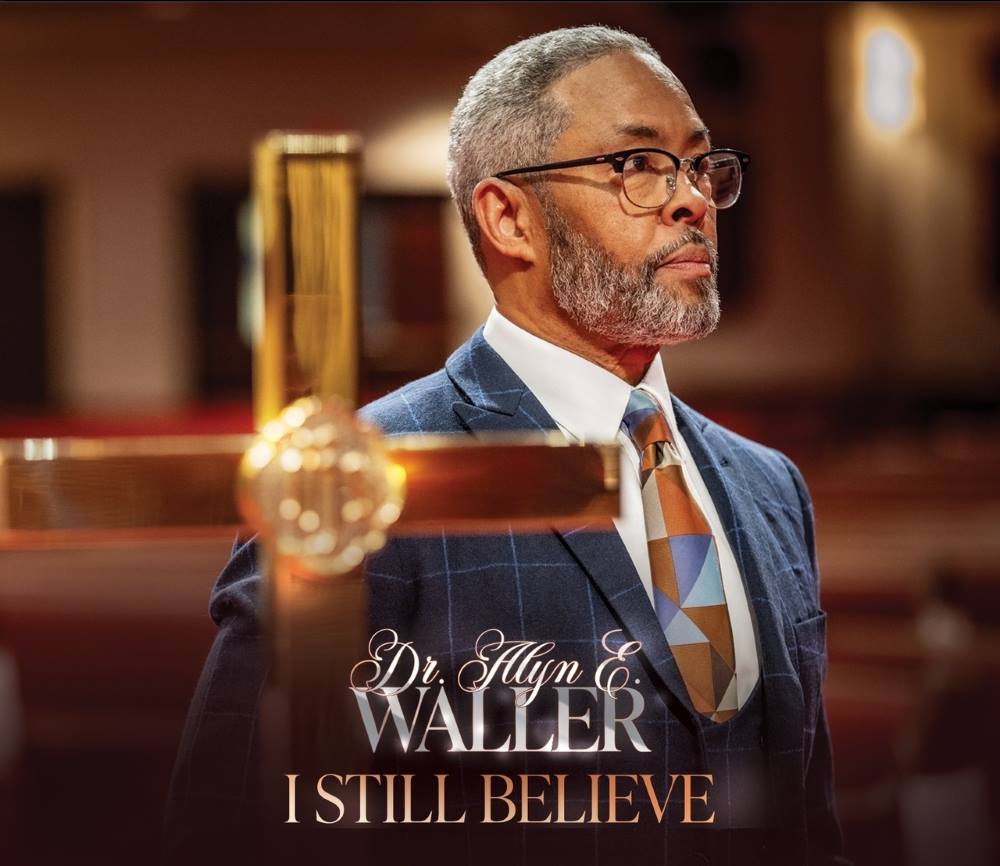Lynn Abbott and Doug Seroff
University Press of Mississippi, 458 pages, illus.
By Bob Marovich for The Black Gospel Blog
Venerable gospel music historians Lynn Abbott and Doug Seroff decant the contents of their sizable notebooks into To Do This, You Must Know How, a history of the development of the African American gospel quartet singing tradition.
Those who follow gospel music history are familiar with Abbott and Seroff. For the past several decades, each has contributed a significant amount of content to books, magazines, journals, commemorative programs, and liner notes. Seroff’s recent essay for There Breathes a Hope, Archeophone Records’ reissue of rare Fisk Jubilee Quartet cylinders, was nominated for a Grammy Award.
In fact, the opening chapter of the book is an expansion of the Archeophone essay. It explains how the jubilee quartet tradition emanated from the revival of university-based vocal harmony singing, most notably the Fisk Jubilee Quartet and its leader, John Work II. From there it made its way, via university-trained teachers, to the mining region of Jefferson County, Alabama, where a generation of young people were taught to sing with “time, harmony, and articulation,” and to foster a love and appreciation for the African American spiritual.
From Jefferson County, quartet trainers moved to Chicago, Mobile, New Orleans, and other cities, teaching new and established quartets, sometimes referred to by its members as “clubs,” the gospel of “time, harmony, and articulation.” Later, singers such as Silas Steele added the pulpit zeal of the Baptist preacher to jubilee quartet, opening the door for the hard gospel quartet style that dominated the 1950s and 1960s.
To Do This benefits from avid detail–Abbott and Seroff endeavor to leave no stone unturned, no tidbit of unearthed information omitted–and is well illustrated with rare publicity photos and illustrations from African American newspapers. At the same time, the book is not mired in academic jargon and is eminently readable.
Along the way, the reader will learn about the primacy of rigorous vocal instruction, as music teachers and quartet trainers, like modern day griots, traveled the highways and byways to instill proper singing skill, discipline, and performance etiquette into men and women who, in turn, taught the next generation, and so on. Abbott and Seroff ensure that long forgotten but important vocal trainers, such as Norman McQueen, Charles Bridges, Joe Union, and Jimmy Ricks, get their props.
This reviewer found the Chicago section particularly fascinating, as it opened the curtain on the often ignored connection between the nascent gospel music community and the city’s classically-trained African American musicians, such as Profs. J. Wesley Jones and James Mundy, and Julia Mae Kennedy. While I would argue quartets had nothing to fear from Dorsey’s National Convention of Gospel Choirs and Choruses—at least not until the late 1950s, and by that point, the real threat to quartet dominance came from the Detroit choral community—the popularity of gospel groups, singers, and choirs ultimately surpassed quartet singing in terms of radio spins. Today, gospel music and quartet singing exist as two separate but parallel communities, a state of affairs that is perplexing but nonetheless real.
To Do This, You Must Know How is essential reading for the serious student as well as the armchair enthusiast of African American sacred music. Abbott and Seroff’s unquestionable street-level command of the subject, and their passion for the music, make the book a pleasure to explore and a significant contribution to American music scholarship.
Five of Five Stars
Written by : Bob Marovich
Bob Marovich is a gospel music historian, author, and radio host. Founder of Journal of Gospel Music blog (formally The Black Gospel Blog) and producer of the Gospel Memories Radio Show.










 Visit Today : 10
Visit Today : 10 This Month : 273
This Month : 273